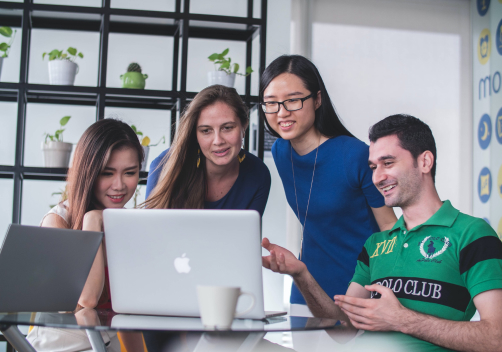The LCCH Asia hosted a virtual event called Your Mind Matters: Medical Hypnosis: Adjunct in Clinical Care live from the Institute Cancer Negara Malaysia (IKN) auditorium on the 29th of June. The ultimate purpose of this event was to share how clinical hypnotherapy and hypnosis had benefited medical care practitioners in their work. The event was presented by 5 highly esteemed medical and dental specialists who had taken a course at LCCH Asia in hypnotherapy and hypnosis.
Firstly, An introduction was made by the first speaker Dr Srilatha Balakrishnan, a trauma and emergency physician at Hospital Putrajaya that included her interesting personal take and experience in using hypnosis. She decided to learn hypnosis due to her mother’s health condition and realized that hypnosis works very well in pain management. She started by pointing out the common negative perceptions of being “hypnotized”, then she gave a simple explanation of the experience that likened it to a sleep like state, with most people remembering what happened. Dr Srilatha mentioned the various uses of hypnosis and shared some of her own case examples with the audience. She explained how she conducted a sports hypnosis session, helping a group of Malaysian sportsmen to perform better in the field. She also explained how she uses EMDR Therapy with patients that experience severe hyperventilation in the Emergency Unit, sharing her amazement at how well it worked very. She ended her talk with her take on the benefits of hypnotherapy, especially how it is used in pain management.
The second speaker was Prof Dr Marzida Mansor, a Senior Consultant Anaesthesiologist and Chronic Pain Consultant at UMMC. Dr Marzida talked about the beauty of hypnosis and the wonderous works it does in helping people to overcome personal issues. She uses the process of hypnosis during surgeries, called Hypno-sedation, where she presented a video of a patient during and after surgery. She presented the entire process, explaining what she said during the hypnosis session with her patient from starting out until the waking point. She emphasized that the most important element are the verbal cues we give to the patients. Dr Marzida said most of her hypnosis attempts were successful and emphasized her belief that it is an excellent aid to pain management.
Dr Anand Chandrasegaran a Consultant Anaesthesiologist and Critical Care Consultant at Columbia Asia Hospital Klang was the third speaker. He talked mainly about the neuroscience behind hypnosis. He also presented some research on the biological and behavioral component in comprehensive pain management. Then, Dr Anand also showed videos of his patients where he conducted hypnosis to reduce their pain and anxiety. One of his patients who was going through a cataract surgery could not tolerate anesthesia alone, so he guided his patient into a day-dreaming mode by asking him to imagine a safe and comforting space. He also told how he used hypnosis with a patient who refused to partake in physiotherapy due to severe pain when moving his fingers and found that hypnosis worked wonders throughout the patients’ sessions. Dr Anand also described three phases that are included in a hypnosis session that are induction, therapeutic suggestions, and teaching self-hypnosis skills.
Our fifth presenter was Associate Prof Dr Annapurny Venkiteswaran, a pediatric dentist at UiTM. Dr Annapurny started off by explaining the anxiety behind a visit to the dentist visit and how dentists are the most feared medical practitioners. She and her friends took lessons in hypnotherapy and hypnosis for personal reasons but eventually learned how it benefits both the dentist and their patient. Dr Annapurny shared that when she started conducting hypnosis on her younger patients, she also used nitrous oxide to manage their pain, anxiety, and phobic response. Eventually, she realized that hypnosis works independently, and she reduced the usage of nitrous oxide with younger children. She presented fascinating real-life stories about her patients who had severe gag reflexes, needle phobias, and previous dental traumas, nicely highlighting how well hypnosis works in dentistry.
The final speaker was Prof M Dato Dr Rishya Manikam a Trauma, Emergency and Acute Care Physician who works at the Emergency Department in University Malaya Medical Centre. Dr Rishya mainly shared his experience using hypnosis with his patients in the emergency unit. He first shared his own story behind why he decided to learn hypnosis. He lost a 12-year-old patient due to severe fracture and decided to venture into hypnosis since as he discovered that it works well with pain management. He shared that all his patients were happy and positive post treatment and explained that he mainly uses hypnosis to calm down trauma patients in the emergency unit.
The event ended with a lively and insightful Q&A session where our speakers welcomed the curiosity of the attendees by answering all their questions.
The key takeaway from this event is how relevant hypnosis is in every medical and dental practice until today. Through the experiences shared by all the speakers, we can see that hypnosis is indeed an effective way to help patients before, during, and after medical procedures.



